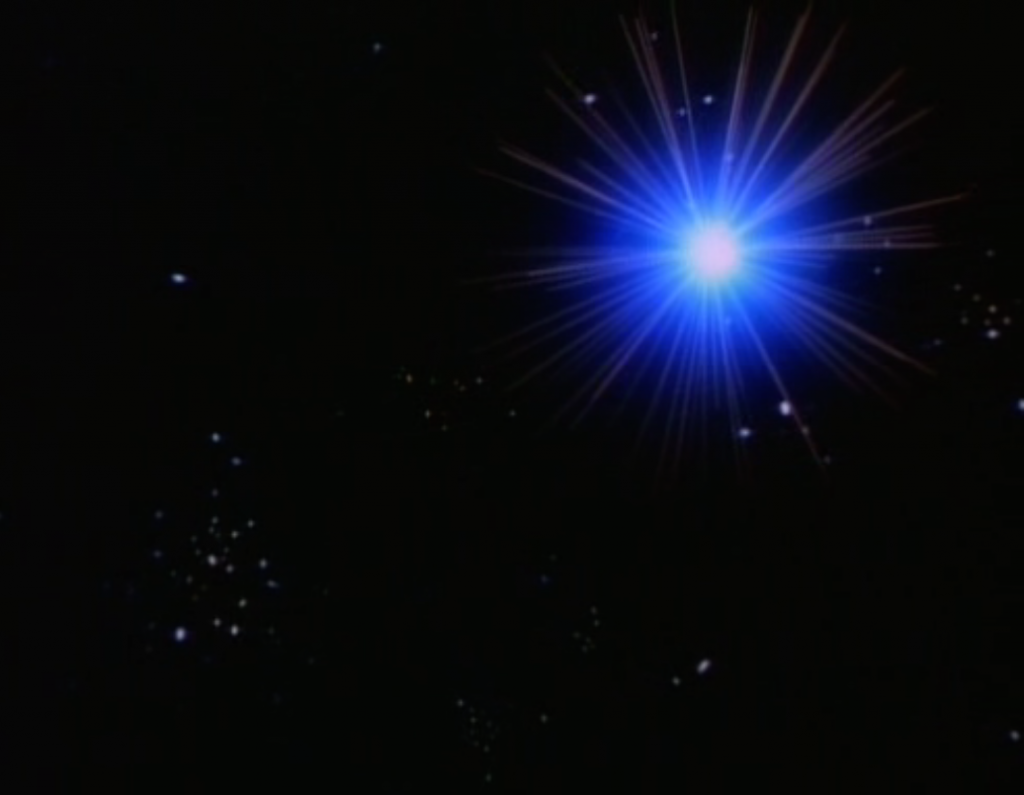Dumbing down Cosmos does no one any favors. If Tyson and his gang wanted to remake Cosmos, they could have gone to PBS (you know like Carl Sagan). Of course no eye candy and no expensive perks for it's star.
Annnd... you've just proven that you have no clue what you're talking about. By 1980 standards,
Cosmos was a special-effects extravaganza, a state-of-the-art production whose art staff included such names as
Star Trek's Rick Sternbach. Sagan pioneered the use of science fiction ideas and visuals -- a spaceship, time travel, etc. -- as a way of conveying scientific concepts. This show is in the same spirit, just with greenscreen and CGI rather than Introvision, miniatures, and hand-rendered animation.
I wasn't bringing up the geological record because of the creationism thing. But because it shows pretty clearly that the planet has gotten along perfectly fine without us for 99% of it's life. And has developed, evolved, and operated over those billions of years according to completely natural processes. As has the Universe before it.
So to suddenly leap to an otherworldly, supernatural explanation at the very start just defies everything else we've discovered. And ignores 13.8 billions years of evidence to the contrary. I just don't know how any scientist could make a leap like that.
Again, though, you're making a narrow set of assumptions about how God or divinity is defined. You're making the same mistake that Creationists make: assuming that religion is exclusively about explaining the origins of the universe. That's not true at all. Yes, that was one of the issues it attempted to address before science came along and provided a better approach to answering those questions. But religion and faith have always been about more than the physical origin of things. They're about the spiritual meaning of life, about morality and ethics, about philosophy and emotion and having a sense of one's place in the universe as an individual. Scientists who believe in religion aren't using it to explain the origins of the universe, because that's what science is for. They use religion to deal with the stuff that science
isn't about.
And plenty of religious people accept the same division of labor. Pope Emeritus Benedict XVI himself, I believe, wrote a statement of the Vatican's policy on evolution declaring that science explained the physical nature of humanity while religion explained our spiritual nature. To many people, science and religion are complementary disciplines, not competing ones.
When people talk about "believing in God," it's usually because they're looking for something bigger than themselves that can somehow give their lives meaning. Which... might as well make it the traditional God of the Bible, as far as I'm concerned. It's still the same mindframe.
That's a profound non sequitur -- and frankly quite ethnocentric, to equate religion with the Bible alone. People find many, many ways to give their lives meaning. A certain percentage of people find it in the Bible, others in the Torah, others in the Qur'an, others in Hindu Vedas, others in the teachings of the Buddha or the Guru Granth Sahib or the Book of Mormon, others in traditional animism, others in New Age Wicca or neopaganism or Vodoun, others in various heterodoxies, still others in deeply personal and individual perceptions of the divine.
The attitude I think you're condemning is the one that people should be required to think a certain way rather than having the freedom to choose their own beliefs. But step back and take a look at yourself here: You're basically trying to require people
not to think a certain way, and that's no better. The important thing is that people have the freedom to choose for themselves what to believe -- which means they have the freedom to disagree with your beliefs or mine without being judged for it.
When I was young, I was taught Christian beliefs. When I got older and questioned them, I embraced scientific thought (and what I suppose you could call Saganism, since he was a major influence), and for a while I was contemptuous of religious belief. But then I had friends in college who were devoutly Christian, and I came to understand that they had sincere and intelligent reasons for their beliefs, that they weren't just blindly following some doctrine that had been fed to them but had arrived at their own individual beliefs through contemplation and choice. One of them had been raised in a fundamentalist family but had questioned her upbringing and had become a far more liberal Christian and was kind of into Wicca as well, as I recall. When people are free to formulate their own individual beliefs for their own reasons, the results can defy all conventional definitions and dogmas.







